Critical thinking skills Normal Worksheets for Ages 3-5
5 filtered results
-
From - To
Enhance your child's cognitive development with our engaging Critical Thinking Skills Worksheets, specially designed for ages 3-5. These worksheets encourage creativity and problem-solving while turning learning into fun. Each activity promotes observational skills, logical reasoning, and decision-making, helping young minds explore new concepts and ideas. With vibrant visuals and age-appropriate tasks, children will develop essential skills through play and interactive learning. Perfect for parents and educators looking to supplement early education, our printable resources are easy to use at home or in the classroom. Start nurturing critical thinking abilities early—visit our website to access the full collection today!
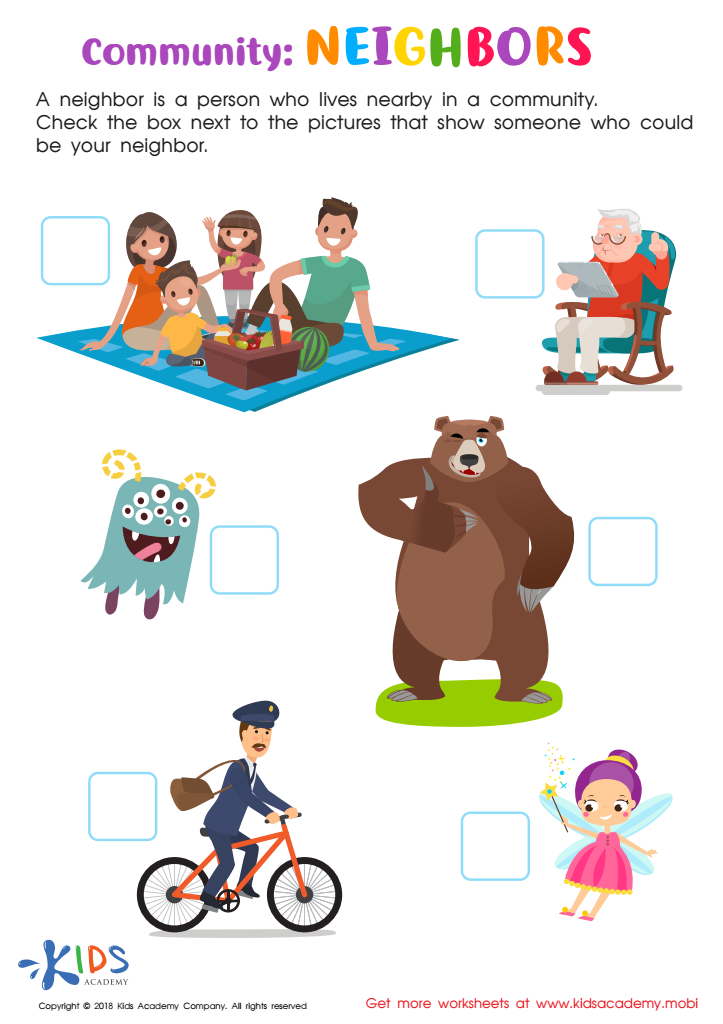

Community: Neighbors Worksheet
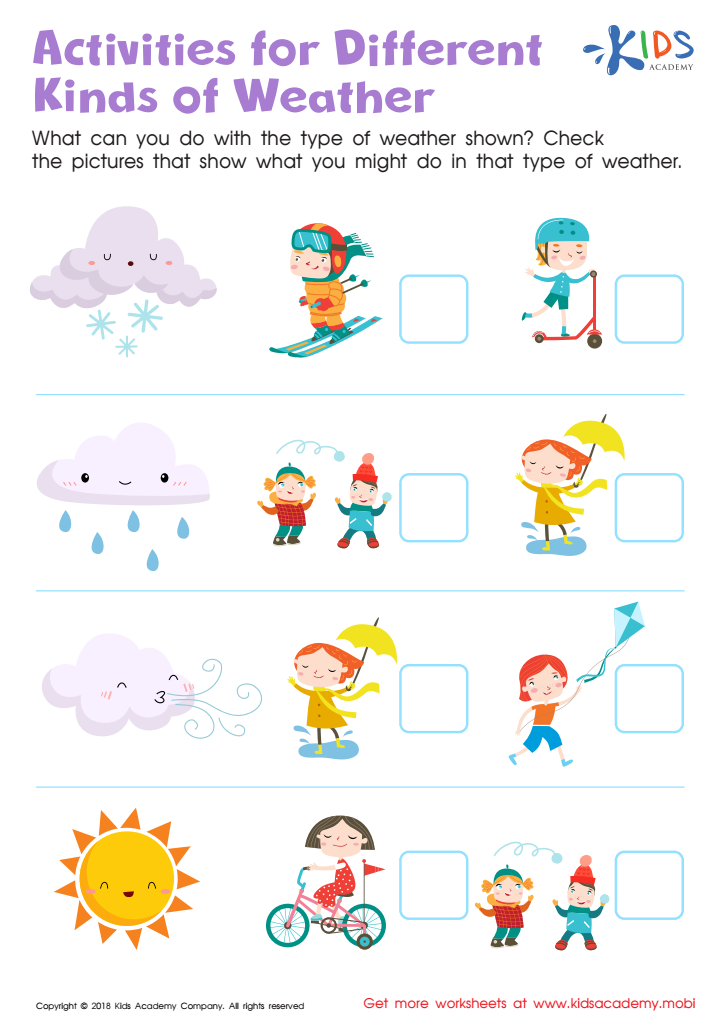

Activities for Different Kinds of Weather Worksheet
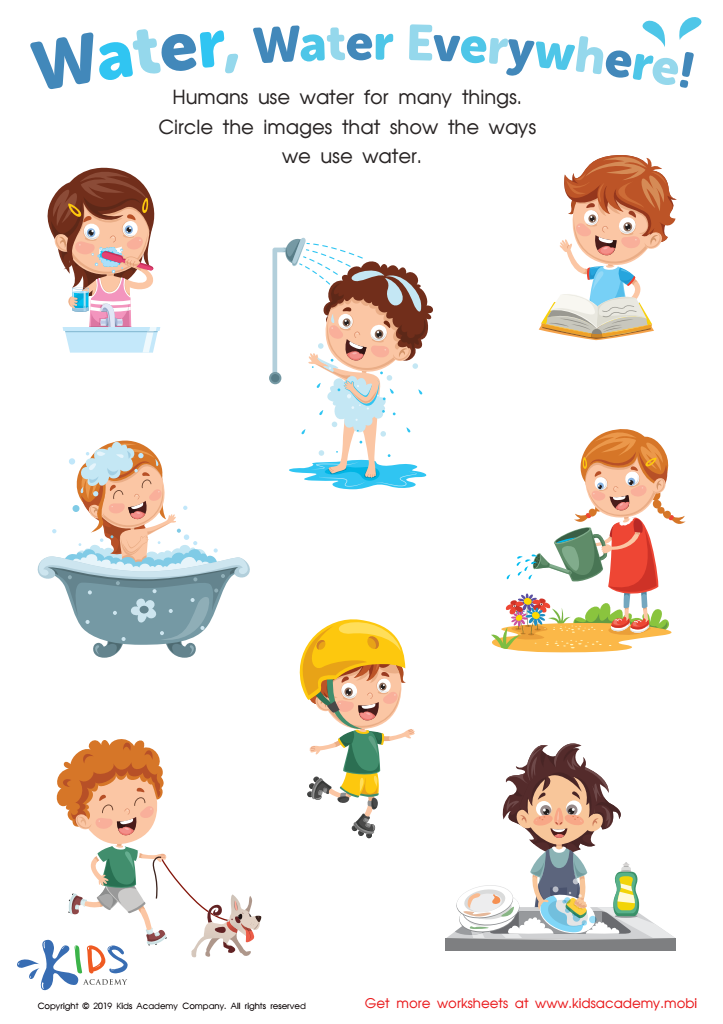

Water, Water Everywhere! Worksheet
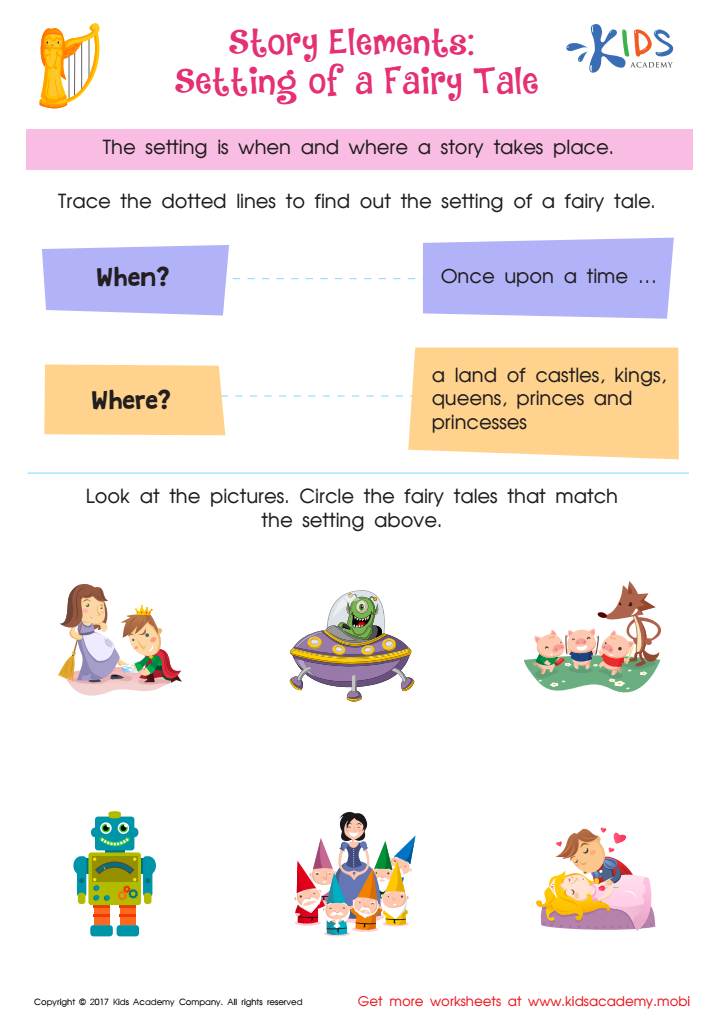

Story Elements: Setting of a Fairy Tale Printable
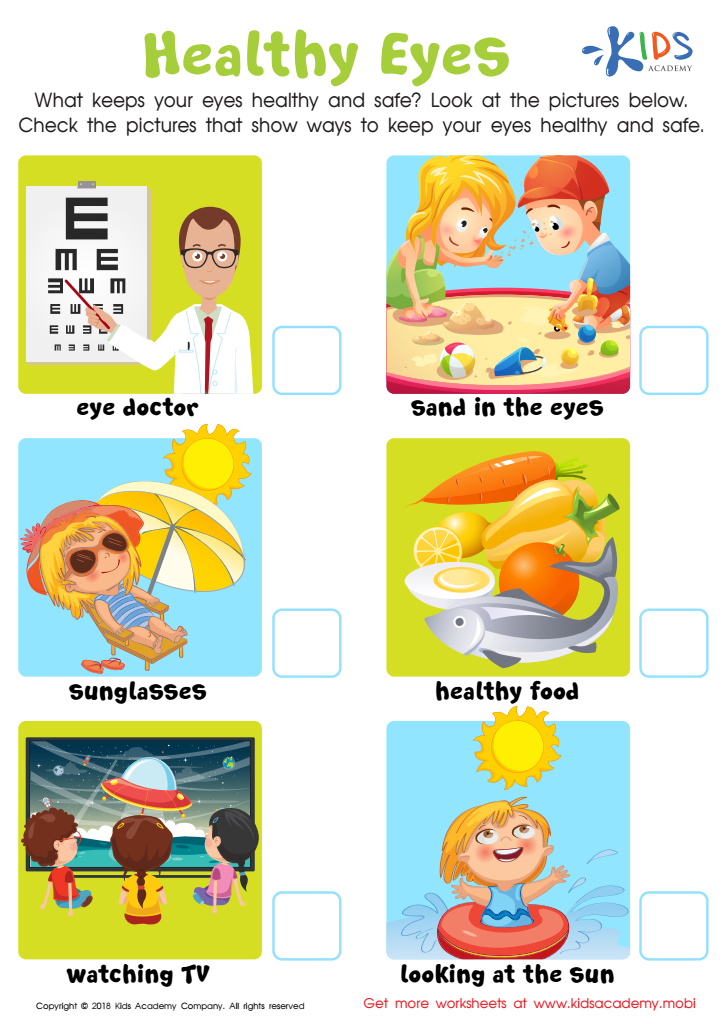

Healthy Eyes Worksheet
Critical thinking skills are crucial for young children ages 3-5 as they lay the foundation for lifelong learning and problem-solving abilities. At this stage, children are naturally curious, exploring their environment and asking questions. Encouraging critical thinking helps them make sense of the world around them, promoting independent thinking and decision-making.
Parents and teachers should prioritize critical thinking because it fosters creativity and innovation. When children learn to analyze information and think independently, they develop solutions to problems rather than relying on rote memorization. This age also marks a critical period for cognitive development; nurturing these skills helps enhance their academic potential, preparing them for more complex tasks as they grow.
Moreover, critical thinking supports social skills. As children collaborate with peers, they learn to communicate effectively, consider different perspectives, and resolve conflicts. These interactions promote empathy and understanding, crucial elements for building strong relationships.
Investing in developing critical thinking skills at a young age not only equips children with necessary cognitive tools but also nurtures confident, inquisitive, and resilient individuals who can navigate challenges throughout their education and life. Such skills are foundational for success, both academically and personally.

 Assign to My Students
Assign to My Students








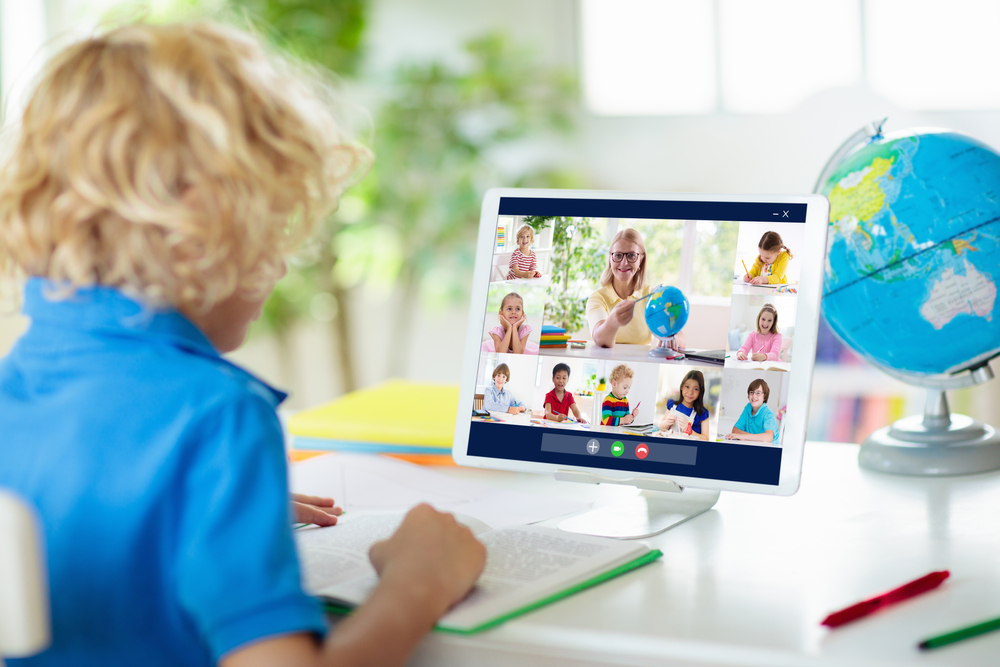

.jpg)










